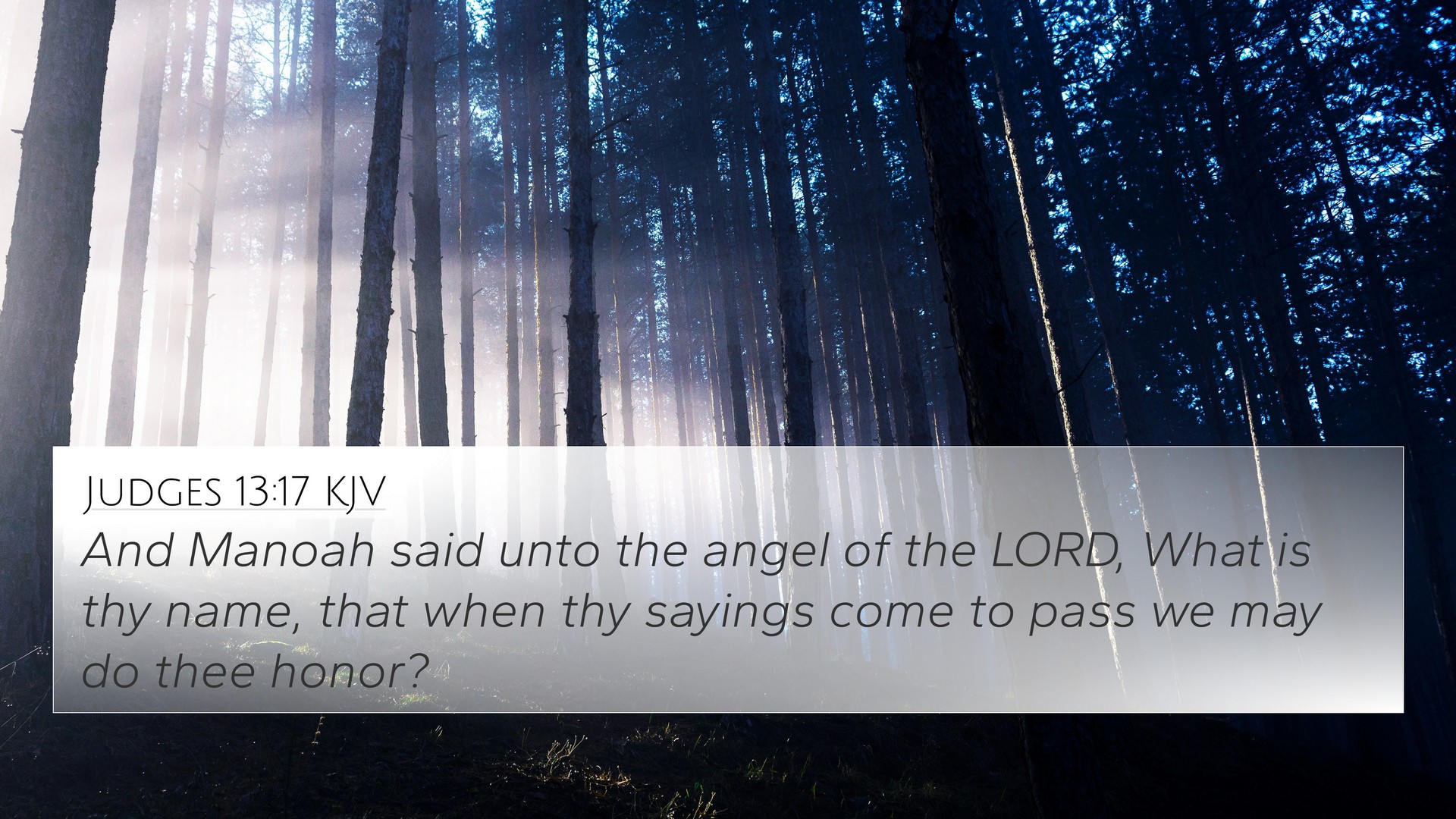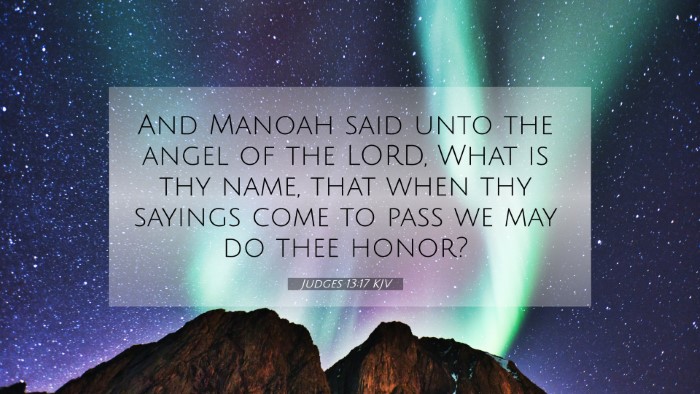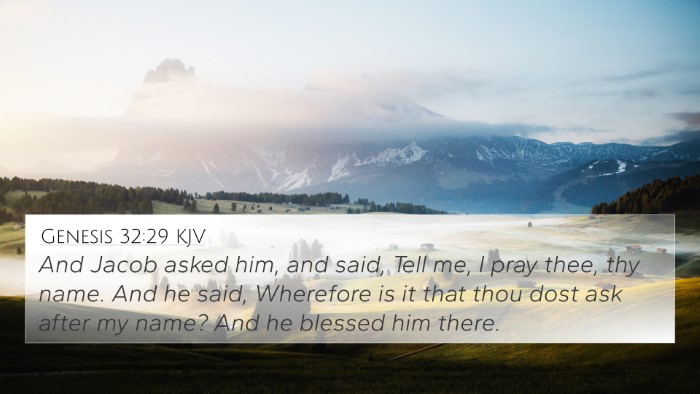Understanding Judges 13:17
Judges 13:17 states, "And Manoah said unto the angel of the LORD, What is thy name, that when thy sayings come to pass we may do thee honor?" This verse comes from a pivotal moment in the story of the birth of Samson, where Manoah, the father of Samson, converses with the angel of the Lord who announced the birth of his son. This interaction between Manoah and the divine messenger offers rich insights into themes of obedience, reverence, and the nature of God.
Key Insights from Public Domain Commentaries
Analyzing this verse through the lenses of notable commentaries provides a deeper understanding:
-
Matthew Henry's Commentary:
Henry emphasizes the importance of recognition and reverence. Manoah’s inquiry about the angel’s name reflects a desire for understanding and an acknowledgment of the heavenly messenger's authority. This also highlights a common biblical theme where knowing God's name carries significance, indicating a deeper relationship and recognition of His power.
-
Albert Barnes' Notes:
Barnes notes that Manoah's question illustrates a human tendency to want to honor God through understanding His character. His request for the angel's name suggests an understanding of honor within the covenant relationship; people often seek to give glory and thanks where it is due.
-
Adam Clarke's Commentary:
Clarke discusses the significance of the question regarding the name. He notes that in biblical tradition, a name is often associated with one's character and purpose. Manoah’s inquiry not only shows his earnestness in wanting to pay respect but also reflects a desire to see God’s promises fulfilled in the life of Samson.
Thematic Bible Verse Connections
This verse opens doors to thematic connections throughout Scripture, particularly around concepts of naming, reverence, and divine intervention:
-
Exodus 3:13-14: The inquiry about God's name reflects Moses' similar question, where God reveals Himself as 'I AM.' This connection underscores the significance of understanding God’s identity.
-
Isaiah 9:6: This prophetic verse speaks of the name of the coming Messiah, providing a parallel in the significance attached to names and their meaning in divine contexts.
-
John 14:13: Jesus discusses doing works in His name, linking back to the concept of honoring God through understanding and relationship.
-
Proverbs 18:10: The name of the Lord is a strong tower; this verse reflects the protection and reverence associated with God’s name, echoing Manoah's request.
-
Matthew 28:19: Christ’s command to baptize in the name of the Father, Son, and Holy Spirit further illustrates the importance of naming in relation to authority and honor.
-
Revelation 19:12: The name on Christ’s robe signifies honor and His divine authority, establishing a continuity of naming across the scriptures.
-
Acts 4:12: Peter speaks about salvation only through the name of Jesus, linking back to the theme of recognizing and honoring the divine name for its power.
Tools for Bible Cross-Referencing
Understanding cross-references can significantly enhance biblical study. Here are some tools and methods for effective Bible cross-referencing:
- Bible Concordance: A tool that allows the examination of key terms and offers related verses.
- Bible Cross-Reference Guide: Provides comprehensive links between verses that discuss similar themes or narratives.
- Cross-Reference Bible Study: Engaging in comparative study methods with linked scriptures aids in understanding broader biblical context.
- How to Use Bible Cross-References: Readers can use cross-references to uncover deeper meanings and interconnections between scripture passages.
- Bible Reference Resources: Utilize available resources to find connections and deeper analysis of scriptures.
Conclusion
Judges 13:17 serves as an excellent example of the importance of understanding God's identity and our relationship to Him through reverence and acknowledgment. As we cross-reference this verse along with others, we gain a richer perspective on the character of God, the significance of names, and the overarching narrative of divine interaction throughout the Bible.



